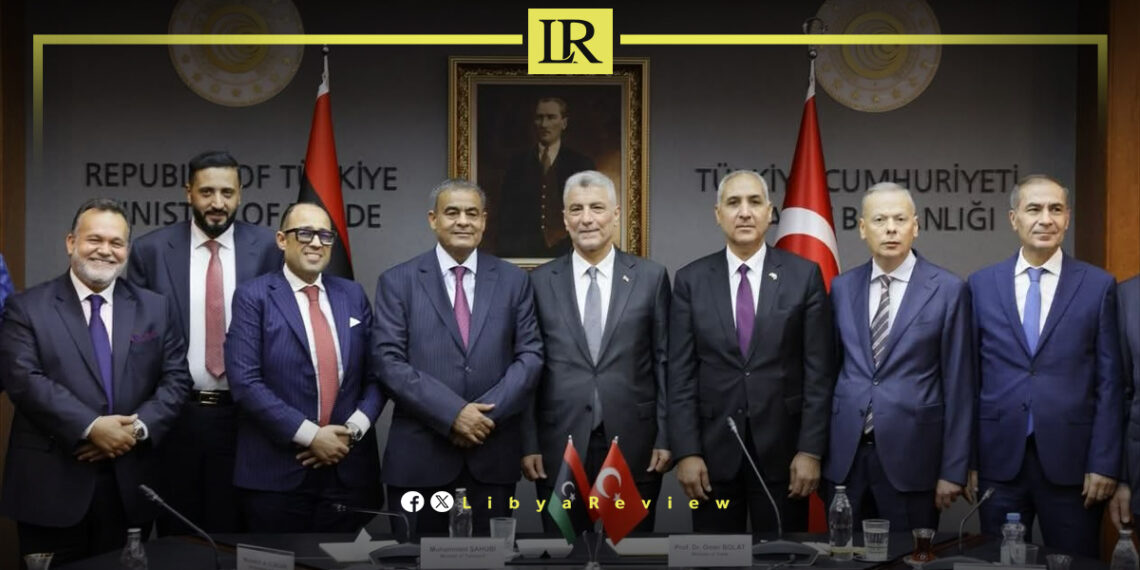Senior officials from Libya and Turkey held a high-level meeting in Ankara on Thursday to address suspended contracts, boost bilateral trade, and advance a new phase of economic partnership between the two nations.
The Libyan delegation was led by Minister of Transport and financial adviser to the Prime Minister, Mohamed al-Shahoubi, joined by Mustafa al-Manea, head of the executive team for presidential initiatives and strategic projects, Deputy Minister of Economy and Trade Suhail Abu Shiha, and Ambassador to Turkey, Mustafa al-Ghalib.
On the Turkish side, Trade Minister Ömer Bolat chaired the talks with Deputy Minister Özkür Volkan Akar, the head of the Turkish Contractors’ Union, and senior institutional representatives.
During the talks, they discussed ways of settling contracts signed before 2011, many of which have been frozen for over a decade due to Libya’s political instability. Both parties also reviewed deals finalized in 2024 and 2025 and agreed on a practical plan to resume development projects that have been halted, particularly in infrastructure and construction.
The meeting also highlighted a sharp increase in bilateral trade, with exchanges rising by 31% in the first eight months of 2025 compared to the same period in 2024. Officials stressed the need to build on this momentum by diversifying cooperation beyond trade into energy, industry, and investment, while supporting new projects that serve both economies.
Turkey remains a major economic partner for Libya, with Turkish contractors historically playing a leading role in the North African nation’s infrastructure sector. Participants emphasized that reviving these projects would not only benefit Libya’s reconstruction efforts but also reaffirm Turkey’s position as a strategic ally.
At the close of the meeting, Turkey extended a formal invitation for Libya to take part in the upcoming Turkey–Africa Ministerial Summit in October, signaling a commitment to deeper regional cooperation. Both sides pledged to maintain close coordination and pursue shared development goals.


